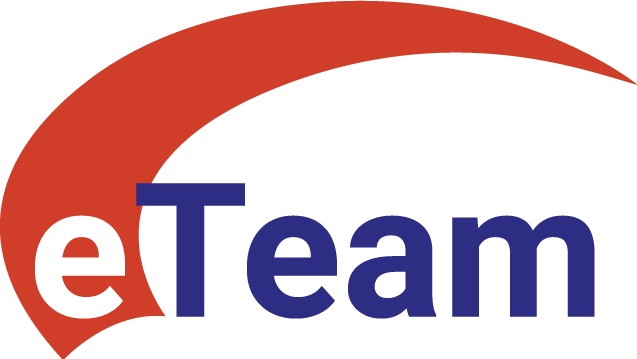- Certified Diversity and Security Cleared Organization | GDPR Compliant
Global Employment Updates 2023: Canada
Last updated on May 25th, 2023 at 01:24 pm
Employment Laws of Canada 2023
An Overview
- MINIMUM WAGE
Canada instituted a new federal minimum wage of $16.65 per hour on April 1, 2023. Previously, workers were subject to the minimum wage of whatever province or territory they worked in. Minimum wage is different in each province and territory.
- Alberta: $15.00.
- British Columbia: $15.65.
- Manitoba: $14.15 (will increase up to $15.00 by October 2023)
- New Brunswick: $14.75.
- Newfoundland and Labrador: $14.50 (will increase up to $15.00 by October 2023).
- Northwest Territories: $15.20.
- Nova Scotia: $14.30 (will increase up to $ 65 by October 2023 and by $15.00 by April 2024).
- Nunavut: $16.00.
- Ontario: $15.50.
- Prince Edward Island: $14.50 (will increase to $15.00 by October 2023).
- Quebec: $14.25.
- Saskatchewan: $13.00 (will increase to $14.00 by October 2023 and by $15.00 by October 2024).
- Yukon: $16.77.
With the rise in the federal minimum wage, employers must now pay their employees whichever rate is higher between the federal minimum wage and the minimum wage in their province/territory of operation.
- WORKING HOURS
The standard hours of work for the employees or student intern are 8 hours in a day and 40 hours in a week. In most cases, the maximum hours of work allowable in a week is 48 however, after the standard 8 hours daily or 40 hours weekly, employers must compensate employees with overtime pay. The exact amount depends on the employee’s regular schedule, role, and what is agreed upon in the contract.
Break Rights: Employees are entitled to a 30-minute unpaid meal break for every five hours of work (one hour in Newfoundland and Labrador). Employees are also entitled to one full day of rest each week, which usually falls on a Sunday. In British Columbia and Quebec, an employee must have at least 32 straight hours free from work each week.
Overtime compensation: When working overtime an employee is entitled to pay of at least 1.5 times the regular hourly wage, or time off with pay, equivalent to 1.5 hours of time off for every hour worked (for example, 5 hours of overtime worked = 7.5 hours of time off with pay).
- SICK PAY
As of December 31, 2022, workers who have been continuously employed for at least 30 days will have access to their first three days of paid sick leave. Starting on February 1, 2023, workers will acquire a fourth day of paid sick leave and will continue to accumulate one day of paid sick leave on the first day of each month following, up to a maximum of 10 days per year.
Employment Insurance Sickness Benefits: Employees and self-employed persons who contribute to Canada’s Employment Insurance (EI) plan will now have access to expanded Employment Insurance sickness benefits. Those who made their claim on or after December 18, 2022, may receive up to 26 weeks of EI sickness benefits, extended from the previous limit of 15 weeks. Qualified individuals can receive 55% of their insurable earnings, up to a maximum of $650 a week. To qualify for EI sickness benefits, claimants must show that:
- They are unable to work for medical reasons, along with a medical certificate signed by a medical practitioner.
- Their regular weekly earnings from work have decreased by more than 40% for at least one week.
- They accumulated 600 insured hours of work in the 52 weeks before the start of their claim or since the start of their last claim, whichever is shorter.
- PARENTAL LEAVE
Maternity Leave: Different maternity or pregnancy leave entitlements exist in each Canadian jurisdiction, with a pregnant employee being entitled to up to 16 to 18 weeks unpaid leave if she has accumulated a certain length of service with the employer.
Paternity leave: Fathers are entitled to take parental leave pursuant to the employment standards legislation in their jurisdiction. The entitlement to parental leave is not just limited to fathers but extends to mothers and adoptive parents. Parental leave in Canada typically can be taken for 35 to 65 weeks depending on the jurisdiction and whether the employee has also taken pregnancy leave.
EI Maternity and Parental Benefits:
- EI maternity benefits can be paid for a maximum of 15 weeks. Employee cannot receive EI maternity benefits beyond 17 weeks after the expected or actual week of childbirth, whichever of the two is later.
- EI standard parental benefits can be paid for a maximum of 35 weeks. The payments must be made within 52 weeks (12 months) of the week the child was born or placed for the purpose of adoption. Extended parental benefits can be paid for a maximum of 61 weeks and must be claimed within a 78-week period (18 months) after the week the child was born or placed for the purpose of adoption.
- AMENDMENTS TO THE COMPETITION ACT
Employers will be most concerned about a new criminal provision under the Competition Act, which will come into effect on June 23, 2023. The provision prohibits employers from agreeing to fix, maintain, decrease, or control wages or other employment conditions, or to refrain from soliciting or hiring each other’s employees.

